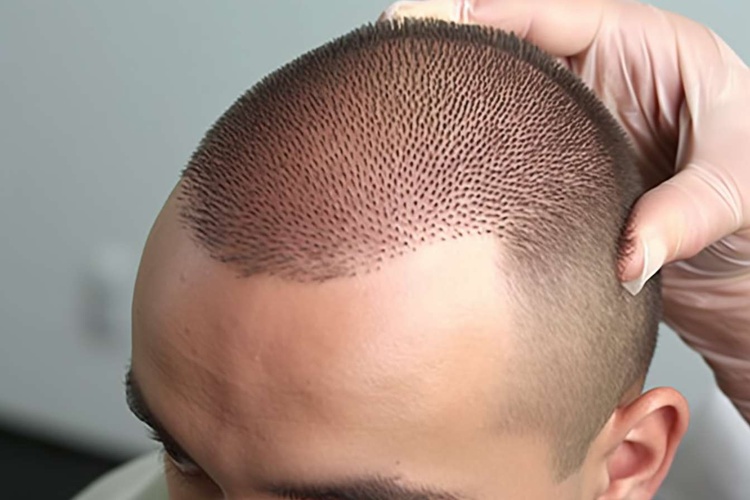Understanding and Managing Scalp Psoriasis: Effective Treatments
Scalp psoriasis is a common skin condition that affects millions of people worldwide. It occurs when the immune system triggers an overproduction of skin cells on the scalp, leading to raised, red, and often itchy patches covered with silvery scales. While it can be challenging to manage, various treatment options are available to help control symptoms and improve quality of life for those affected by this persistent skin disease.

These symptoms can extend beyond the hairline, affecting the forehead, back of the neck, and behind the ears. It’s important to note that scalp psoriasis is not contagious but can significantly impact an individual’s self-esteem and daily life.
How is scalp psoriasis diagnosed?
Diagnosing scalp psoriasis typically involves a thorough examination by a dermatologist or healthcare provider. The process may include:
-
Visual inspection of the scalp and affected areas
-
Review of medical history and family history of psoriasis
-
Skin biopsy in rare cases to rule out other skin conditions
In some instances, scalp psoriasis can be confused with seborrheic dermatitis, another common scalp condition. A proper diagnosis is crucial for determining the most effective treatment plan.
What are the available treatment options for scalp psoriasis?
Treatment for scalp psoriasis aims to reduce inflammation, slow down skin cell growth, and relieve symptoms. The choice of treatment depends on the severity of the condition and may include:
-
Topical treatments: These are usually the first line of defense and include:
-
Corticosteroid creams or ointments to reduce inflammation
-
Vitamin D analogues to slow skin cell growth
-
Salicylic acid to help remove scales
-
Coal tar shampoos or solutions to reduce inflammation and slow skin cell growth
-
-
Light therapy: Controlled exposure to UV light can help slow skin cell turnover and reduce inflammation. This may be done in a clinical setting or at home with specialized devices.
-
Systemic medications: For severe cases, oral or injectable medications that work throughout the body may be prescribed, such as:
-
Methotrexate
-
Cyclosporine
-
Biologics (e.g., adalimumab, etanercept, ustekinumab)
-
-
Medicated shampoos: Special shampoos containing ingredients like ketoconazole, selenium sulfide, or zinc pyrithione can help manage symptoms and reduce scaling.
Are there any natural remedies for scalp psoriasis?
While medical treatments are often necessary, some natural remedies may help alleviate symptoms:
-
Aloe vera: Known for its soothing properties, aloe vera gel may help reduce redness and scaling.
-
Tea tree oil: With its anti-inflammatory and antimicrobial properties, tea tree oil may help reduce itching and scaling when diluted and applied to the scalp.
-
Apple cider vinegar: Diluted apple cider vinegar rinses may help balance the pH of the scalp and reduce itching.
-
Omega-3 fatty acids: Consuming foods rich in omega-3s or taking supplements may help reduce inflammation.
-
Stress reduction techniques: Since stress can trigger or worsen psoriasis flares, practices like meditation, yoga, or regular exercise may be beneficial.
It’s important to consult with a healthcare provider before trying any natural remedies, as some may interact with medications or cause skin irritation.
How can scalp psoriasis be managed in daily life?
Living with scalp psoriasis requires ongoing management. Here are some tips to help control symptoms and prevent flare-ups:
-
Follow a regular scalp care routine, including gentle shampooing and moisturizing
-
Avoid scratching or picking at scales, which can worsen inflammation and lead to infection
-
Use a humidifier to prevent dry skin, especially in winter months
-
Manage stress through relaxation techniques and regular exercise
-
Avoid known triggers, such as certain foods, alcohol, or smoking
-
Be gentle when styling hair and avoid tight hairstyles that can irritate the scalp
-
Regularly communicate with your healthcare provider about your symptoms and treatment effectiveness
By combining medical treatments with lifestyle modifications, many people with scalp psoriasis can effectively manage their condition and maintain a good quality of life. Remember, what works for one person may not work for another, so patience and persistence are key in finding the right treatment approach.
This article is for informational purposes only and should not be considered medical advice. Please consult a qualified healthcare professional for personalized guidance and treatment.






